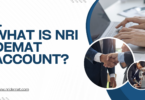Common Mistakes NRIs Make While Opening a Demat Account and How to Avoid Them
Opening a Demat account is an essential step for Non-Resident Indians (NRIs) looking to invest in India’s financial markets. A Demat account allows NRIs to hold securities like stocks, bonds, mutual funds, and exchange-traded funds (ETFs) electronically. However, the process for NRIs is slightly different from that for resident Indians, and as a result, mistakes are common. These errors can lead to unnecessary delays, complications, or even financial loss. In this blog, we’ll explore some of the most common mistakes NRIs make when opening a Demat account and how to avoid them.
Not Choosing the Correct Type of Demat Account
Mistake: Many NRIs fail to select the appropriate type of Demat account based on their repatriation preferences. There are two main types of Demat accounts for NRIs:
- Repatriable Demat Account: This account allows you to transfer funds from your investments back to your overseas account. It must be linked to a Non-Resident External (NRE) account.
- Non-Repatriable Demat Account: Funds in this account cannot be transferred overseas and must be linked to a Non-Resident Ordinary (NRO) account.
NRIs often select the wrong type of account, limiting their ability to transfer or repatriate funds as per their needs.
Solution: Before opening a Demat account, carefully assess your financial goals. If you intend to send your earnings from investments back to your country of residence, opt for a repatriable account. If you plan to keep the money in India for future expenses, a non-repatriable account might be more suitable.
Failure to Link the Right Bank Account
Mistake: Another frequent mistake NRIs make is linking the wrong bank account to their Demat account. As mentioned, NRIs need to link either an NRE or NRO account based on whether they want a repatriable or non-repatriable Demat account. Some NRIs mistakenly link a regular savings account, which can lead to complications in fund transfers and compliance issues.
Solution: Ensure you have the appropriate NRE or NRO account before initiating the Demat account opening process. Double-check the account details while filling out the Demat account application form to avoid any processing delays.
Inadequate Documentation
Mistake: The documentation process for NRIs is more stringent than for resident Indians. Many NRIs submit incomplete or incorrect documentation, leading to delays in opening the Demat account. Common documentation errors include:
- Submitting incorrect proof of overseas address.
- Failing to notarize documents as required.
- Not providing a valid PAN card.
Solution: To avoid this, ensure that you have the correct and up-to-date documents in place. The following documents are typically required:
- Copy of PAN card.
- Passport-size photographs.
- Proof of overseas residence (such as a utility bill or bank statement).
- Proof of Indian address (if applicable).
- Copy of the Passport and Visa.
- Duly filled-out application forms. Ensure that all copies are notarized or attested by the Indian Embassy/Consulate as required.
Not Understanding RBI’s PIS Regulations
Mistake: NRIs must comply with the Reserve Bank of India’s (RBI) Portfolio Investment Scheme (PIS) rules. Under PIS, NRIs can buy and sell shares on a repatriable basis through a single bank account designated for this purpose. Many NRIs fail to register for a PIS account, which can cause issues when investing in Indian stock markets.
Solution: Before initiating any equity transactions, ensure you register with the PIS through an authorized bank. This is a crucial step to ensure compliance with RBI regulations. Many banks offer PIS accounts along with Demat services, so inquire if your chosen provider offers this facility.
Not Researching Brokerage Fees and Charges
Mistake: Another common mistake NRIs make is not thoroughly researching the fees and charges associated with opening and maintaining a Demat account. Different brokers have different fee structures, including account opening fees, annual maintenance charges (AMC), and transaction fees. Overlooking these costs can lead to unpleasant surprises later on.
Solution: Compare the charges across different brokers before opening your account. Look for a brokerage that provides competitive pricing and services that match your investment needs. While low fees are attractive, it’s equally important to consider the quality of customer service and additional features provided by the broker.
Ignoring Tax Implications
Mistake: Taxation can be tricky for NRIs, especially when it comes to investments in India. Many NRIs are unaware of the tax rules governing capital gains, dividends, and interest income earned through their investments in India. Not understanding these tax implications can lead to compliance issues or higher tax liabilities.
Solution: NRIs should be aware that their investment income is subject to taxation under Indian laws. For instance:
- Short-term capital gains on equity investments are taxed at 15%.
- Long-term capital gains above INR 1 lakh are taxed at 10% without indexation.
- Dividend income is taxable based on the individual’s tax slab.
Consult a tax advisor who is familiar with NRI taxation rules to avoid any surprises. Additionally, make sure that the broker you choose provides clear guidance on tax deductions, such as Tax Deducted at Source (TDS).
Not Being Aware of Power of Attorney (PoA) Requirements
Mistake: Many NRIs live abroad and might not always be available to manage their Demat accounts directly. Failing to appoint a Power of Attorney (PoA) can complicate managing investments from overseas. Without a PoA, NRIs may face delays in making timely buy/sell decisions.
Solution: Consider appointing a trusted person in India as your PoA to manage your Demat account when you are unavailable. This allows them to operate the account on your behalf, including executing buy/sell orders, signing documents, and performing other necessary actions. Ensure the PoA is properly executed and registered with your broker.
Choosing the Wrong Broker
Mistake: Selecting a broker without researching their NRI services can be a costly mistake. Not all brokers provide dedicated NRI services, and those that do may offer subpar features, customer service, or technology. This can lead to delays in trade execution or difficulty in managing the account from overseas.
Solution: Look for a broker that specializes in NRI services. Consider factors like:
- User-friendly platforms that support international clients.
- Efficient customer support tailored to NRIs.
- Expertise in handling NRI regulations and taxation.
- Availability of investment products suited for NRIs.
Bottom-line
Opening a Demat account as an NRI can be a straightforward process if done correctly. Avoiding the common mistakes outlined above will ensure a smooth and hassle-free experience. Whether it’s choosing the right account type, ensuring proper documentation, or understanding the tax implications, due diligence is key to successful investing in India as an NRI. Take your time to research, ask questions, and select a broker that suits your needs to make the most of your investment journey.







